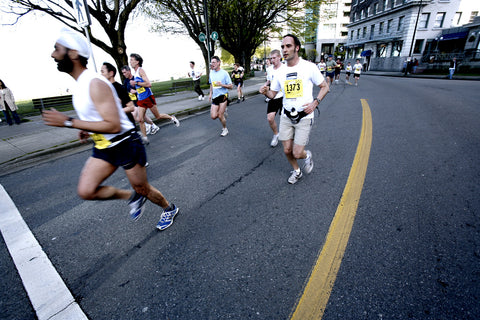Exercise Benefits Improve Aging Brains, Study Finds

If exercising seems to be getting more difficult as you age, you may find your cognitive function becoming more challenging, too. That’s the findings of recent research linking exercise benefits to better mental function.
Research published in the forthcoming issue of the journal NeuroImage looked at the health of aging Japanese men ages 64 to 75.
The researchers test the aerobic health of the men as well as the cognitive functions of the men, measured by infrared probes monitoring blood flow and oxygen uptake in the brain.
“With the probes in place, the volunteers completed complex, computerized tests, during which names of colors appeared in type of a different color. The word blue would appear in yellow type, for instance, and the volunteers would be expected to press keys corresponding to the name, but not the hue, of the word,” reports the New York Times.
Younger test subjects—about half the age of the older subjects—showed more activity in the left hemisphere of the prefrontal cortex, which demonstrates attention and decision-making skills.
“But when the scientists examined the brain activity of these older men, they found that most also required activity in their right hemispheres,” the Times explains. “They needed more of their brains to pitch in in order to complete the task.”
That wasn’t true, however, for the most aerobically fit older volunteers.
“The fittest men showed little or no activation in their right hemispheres; they needed only their left hemisphere for the task,” the Times reports, just like the younger test subjects.
The fitter older men were also more accurate and faster in the computer keystrokes for the test, than the older subjects who weren’t as fit.
Study researchers say the data point to a strong correlation between higher aerobic fitness and improved cognitive function.
“Fit older people’s brains require fewer resources to complete tasks than do the brains of older people who are out of shape,” the Times summarizes.
The study did not look at the types of exercise the men were performing, only their overall aerobic health.
The upshot of the findings, he said, is that daily mild exercise such as walking and mild jogging may affect the way the brain works, so that an older person’s brain “acts like a younger brain.”
image: kris krug
Leave a comment
Comments will be approved before showing up.


